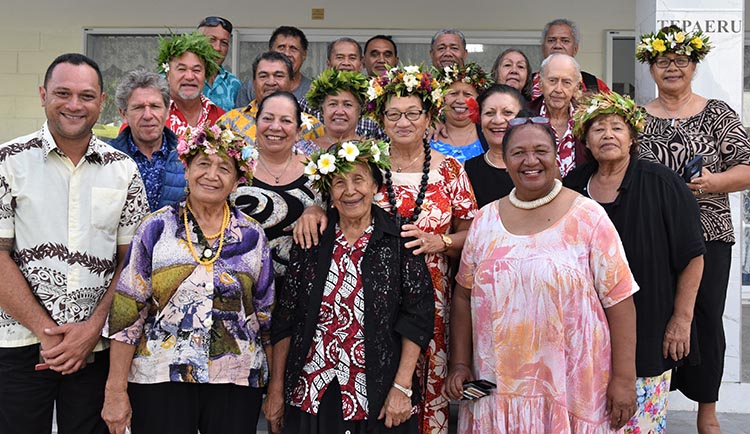Exercising fairness when addressing key land issues
Saturday 16 October 2021 | Written by Thomas Tarurongo Wynne | Published in Opinion

Members of the Koutu Nui on the last day of their annual general meeting in June this year. 21061727
Greed is as much a problem as is absentee landowners and those that have profited much from turning their kainga into a cash register. If we want to address absentee landowners, and we should, we should also address this issue of land banking and greed at the same time.
On the 26th of February 1920, nearly five years after the establishment of the Land Court in 1915 and one we are told was agreed upon by our traditional leaders, Pa, Makea and Tinomana along with a delegation of Mataiapo including my Tupuna Eteke Te Ava, Manavaroa, Tuperetu, Araiti, Tamarua, Uirangi, Apai and Rangatira, Anautoa, Ngarepa Taiti te Rangi and others, meet with Sir James Allen Member of Parliament for New Zealand and his delegation in Rarotonga.
Maoate, acting as spokesman for the Arikis and Mataiapo, makes this haunting statement – He asks for the power and the mana of the arikis and mataiapo be returned to them. They did not know, he says, their mana would be taken from them by individual title and that they had lost their power and were now living without mana. What we know as Māori is that land and mana sit together and when we have land, there is mana and when we have it taken away, especially by a change of law, the feeling left runs deep because for us as Maori, mana is lost in the process.
Nothing runs deeper than the loss of mana, and something our traditional leaders realised too late because in the words of Sir James Allen – the work of the Land Court had now been completed and no alteration of the Law could now take place. Their mana was stripped, the land cut up and portioned out and yet he tried to soften their loss of mana by assuring them they would retain their larger shares because they were Ariki, and Mataiapo; large shares to this day they and their families still retain.
There is little argument that our Land laws do not reflect our current situation nor the issue of absentee landowners. There is no dispute that people flying into Rarotonga, having a land meeting or at the very least standing before a Judge, having the Judge make a decision and then hopping back on that plane is just not ok, and this needs to be addressed. But for the Koutu Nui, our traditional leaders, to suggest that a line be drawn in the sand and generations be literally cut off and alienated by a change in law, leaves for those cut off that same deep sense of pain and loss of mana that they were so aggrieved about in 1920 – this was when they suddenly realised they were no longer the overlords of land and could no longer decide who could and who could not own and live on lands.
In their submission, Koutu Nui has made a number of recommendations, I largely agree with some, but not this idea that land should only be for those whose umu fires still burn bright because they reside at home. I then pose this question; how do you propose to determine when an umu fire goes out for a Cook Islander who does not reside in the Cook Islands? Is it when they see their land as just a commodity, or maybe it is when they land bank it and use it for trade and profit or leave it barren?
I look at the photo of the Koutu Nui and I see many of you, some family to me and many of you close and much respected friends. The truth remains however, that many of you have lands all across Rarotonga, land leased, land with government buildings where you receive rent from leases and large swaths of land because of your titles or because you have in your own words, kept the umu fires burning – in fact your umu fires have burned so bright, one could argue they have diminished the umu fires of others.
If we want to discuss what is fair, maybe our traditional leaders could start with publicly declaring just how many acres this small group have amassed together so as we know how much kainga you actually possess while the many in Rarotonga struggle for 800 square metres to build a home. Because greed is as much a problem as is absentee landowners and those that have profited much from turning their kainga into a cash register. If we want to address absentee landowners, and we should, we should also address this issue of land banking and greed at the same time.
I am going to return home, and I keep my umu warm for when I ask my family for land so I can build a home, a kainga because those decisions belong to our kopu, our families and our families alone. For our community’s resident in Aotearoa, Australia and afar, I ask, are they just Cook Islanders when it is convenient, when one needs sports or Olympic teams filled or to fundraise for halls, events or function? No, we are Cook Islanders because of that sacred tree whose branches we are all a part of and though they be branches that reach across the oceans, they are sacred and if we cut deep into that sacred tree and its tender branches of aka’papa’anga eventually, the roots we all depend on to keep that tree alive will die also.














































